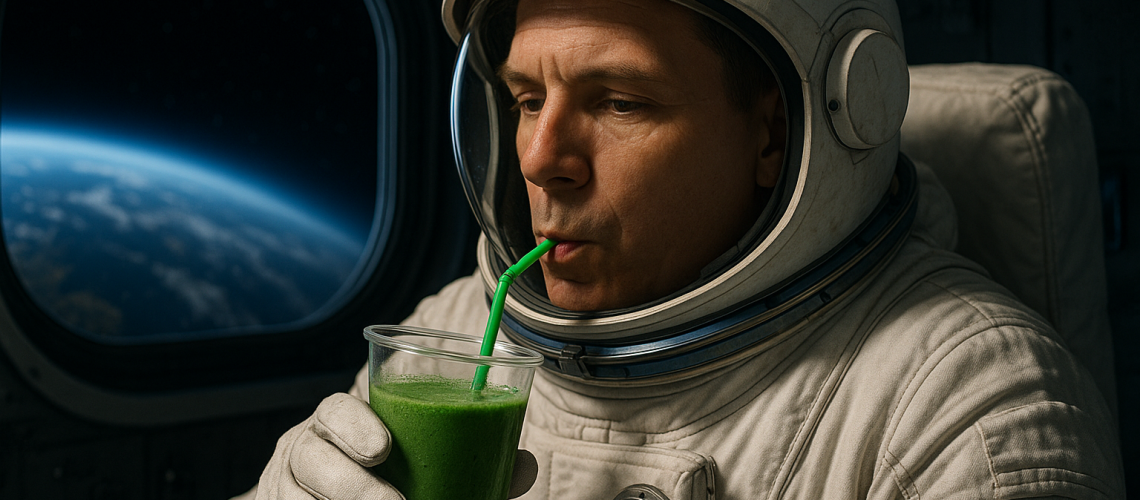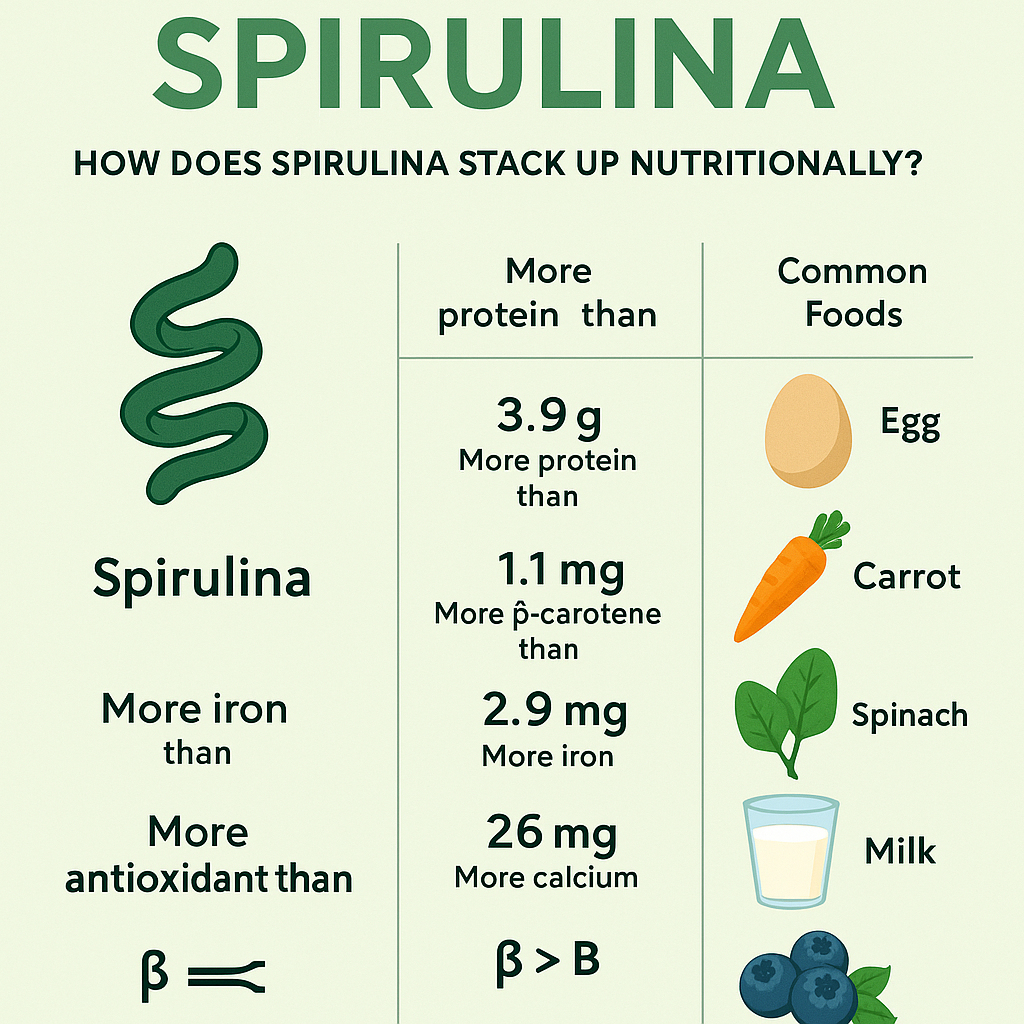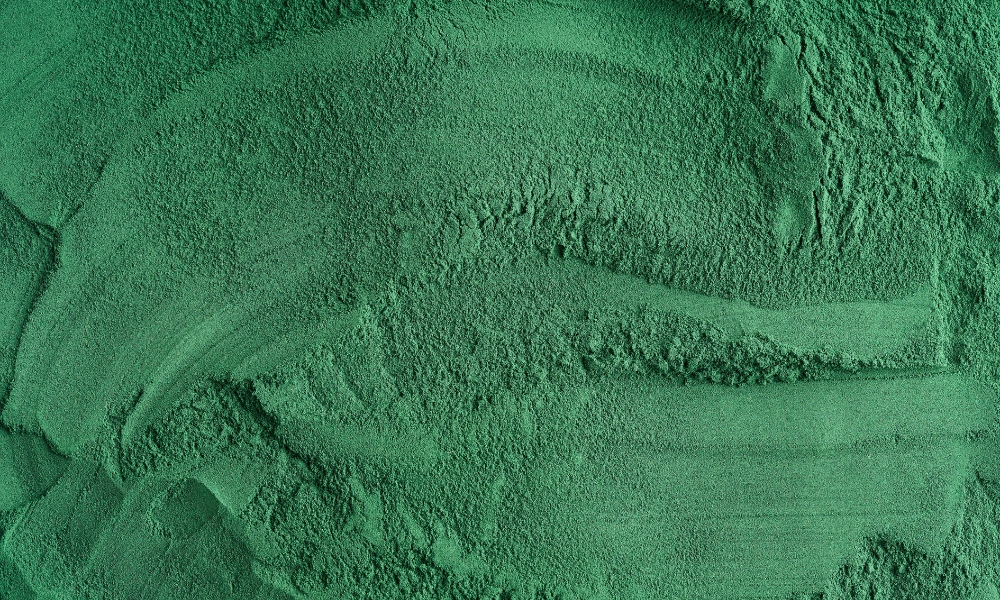Made with under the sun daily.
Made with under the sun daily.

When it comes to space missions, nutrition is more than just food—it’s survival. That’s why NASA has extensively studied spirulina, the microscopic blue-green algae, and officially recommended it as a superfood for astronauts. Here is why NASA recommend spirulina, and what makes it so special.
“The cyanobacteria Arthrospira platensis NIES-39, commonly known as spirulina, could provide a fresh supply of nutrients for crew on long-duration spaceflight missions. Spirulina is a readily digestible food that is high in protein with all essential amino acids as well as significant levels of B vitamins, antioxidants, and anti-inflammatory metabolites…” (Fisher, Broddrick and Settles, 2023)
NASA constantly looks for foods that are lightweight, nutritious, and easy to store. In space, every ounce counts, and astronauts need a compact food source that provides maximum nutrition. Spirulina checks all those boxes, making it a top choice for long-term space travel.
Spirulina has been consumed for centuries by ancient civilisations, such as the Aztecs. They harvested it from lakes and used it as a primary source of protein.
Unlike many plant foods, spirulina is a complete protein source, containing all essential amino acids. It’s rich in vitamins, minerals, and antioxidants, making it one of the most nutrient-dense foods on Earth (Fresh Spirulina, What is spirulina good for?, 2025 ).

Spirulina is dry, light, and requires minimal storage space—a must-have in spacecraft.
It provides up to 70% protein by weight, significantly higher than that of meat or soybeans, which helps astronauts maintain muscle in zero gravity.
Unlike fresh produce, spirulina can last months to years without spoiling, making it ideal for long journeys.
Spirulina grows rapidly in small amounts of water, making it a sustainable food source that could even be cultivated in space habitats.
Spirulina isn’t just for astronauts—it benefits everyone:
NASA’s studies popularised spirulina, leading to its rise in supplements, smoothies, and functional foods worldwide. Today, spirulina is found in energy bars, powders, and even skincare products.
Q1: Why does NASA recommend spirulina for astronauts?
Because it’s compact, protein-rich, and provides complete nutrition.
Q2: Is spirulina safe for daily use?
Yes, when taken in recommended doses, it’s safe and beneficial.
Q3: Can spirulina replace a full meal?
No, it’s a supplement—not a replacement for whole meals.
Q4: Does spirulina help with energy?
Yes, it’s protein, iron, and B vitamins that naturally boost energy.
Q5: How long can spirulina last in storage?
Properly sealed, it can last 2–3 years.
Q6: Is spirulina a vegan and sustainable option?
Yes, it’s 100% plant-based and eco-friendly.
NASA’s endorsement of spirulina isn’t just about space—it’s about survival and maximising human potential with minimal resources. Whether you’re an astronaut in orbit or someone seeking to enhance your health on Earth, spirulina is one of the most potent superfoods available today.
Fisher, K.E., Broddrick, J.T. and Settles, A.M. (2023). Space Algae-2: Preflight Testing for A Long-Duration, Multi-Omics Analysis of Arthrospira Platensis. [online] Nasa.gov. Available at: https://ntrs.nasa.gov/citations/20230008532.

Founded in Southeast QLD and located on Certified Organic farmland, we are an Australian-made Fresh Spirulina commercial farm. We are subject to the Australia New Zealand Food Standards Code and produce fresh Spirulina using food-grade nutrients only, pay attention to the freshness and health of our spirulina.
You can visit us at our social media pages at facebook.com & instagram.com


Would you like to be notified when we start?



Thanks! You're on the list.
It's safe to close this popup now.